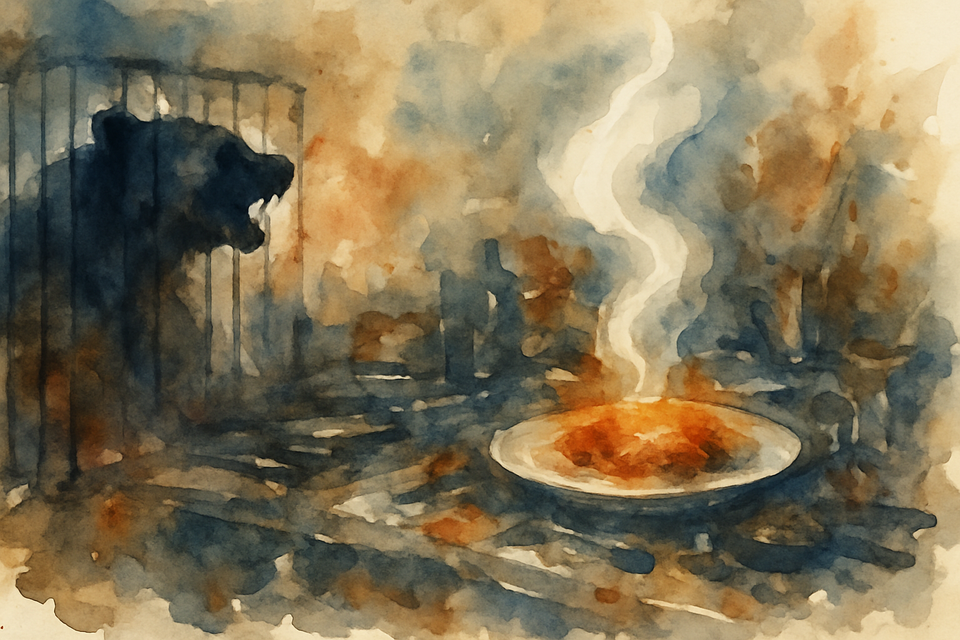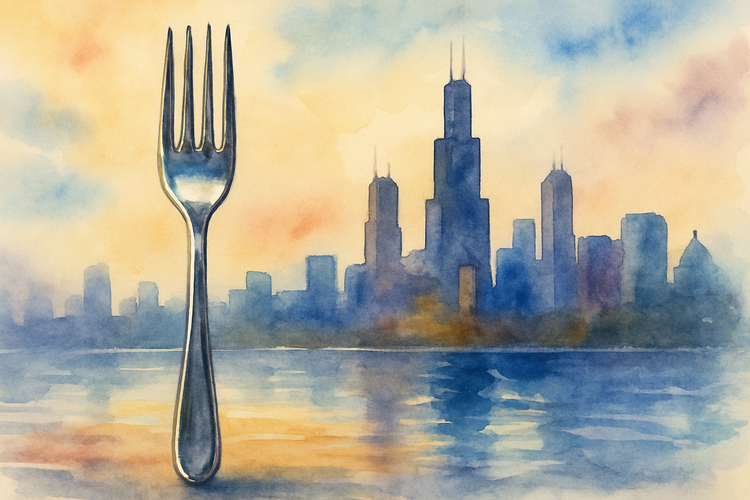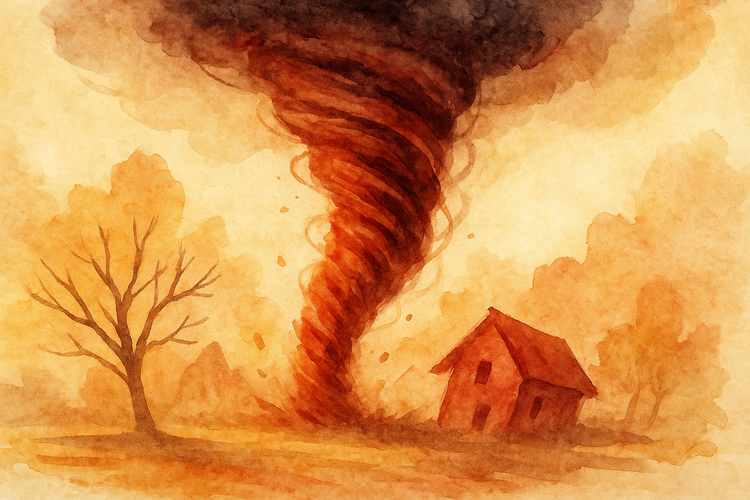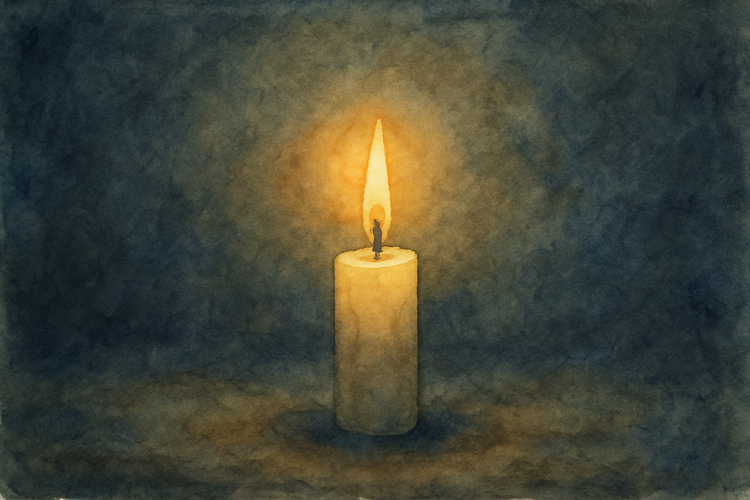The Bear, Season One Cornerstone: Chaos, Fragility, and Love in the Ashes

Spoilers ahead for Season 1 of The Bear.
The Cage Opens
The Bear begins in a dream: Carmy unlocking a cage, coaxing a massive grizzly into calmness even as it lunges toward him. The bear is grief, the bear is chaos, the bear is inheritance — too large, too dangerous, too wild to tame, and yet Carmy reaches for it anyway. That surreal opening sets the tone for the entire first season. Carmy’s life is already a struggle to steady something bigger than himself, a burden he cannot walk away from but also cannot control.
From the start, the show frames itself not just as a kitchen drama but as a meditation on survival. The Beef is a stage for chaos: broken plumbing, failed systems, volatile personalities, and unresolved grief all colliding in a cramped Chicago restaurant. The question isn’t simply whether Carmy can make it work, but whether anyone can hold such a fragile inheritance without breaking themselves in the process.
System and Hands
In “System,” the pilot episode, Carmy inherits The Beef through Michael’s death. What should be an act of trust feels instead like a curse, a daily reminder of grief written into the walls of the restaurant. Belonging itself is immediately contested. Richie claims the place was fine before Carmy arrived and positions himself as Michael’s true keeper. Sugar, Carmy’s sister, bristles at seeing him swallowed by the shop. Sydney enters from another angle, a stranger but with family ties of her own — memories of coming there as a child. Each presence complicates the idea of ownership: who belongs at The Beef, who is carrying Michael’s legacy, and what right Carmy has to lead.
Carmy responds in the only way he knows: with structure. “Hands” reveals the roots of that instinct in flashbacks to the brutal world of fine dining, where Carmy was forged under abuse disguised as excellence. Precision was enforced through cruelty, humiliation wielded as a management tool. Returning to The Beef, Carmy does not import the cruelty, but he cannot let go of the discipline. He shouts for “hands” to impose order, teaches the staff to clean, and drills them in rituals meant to hold chaos at bay.
For Carmy, these efforts are survival mechanisms. Cleaning the kitchen becomes a way of cleaning himself, as if scrubbing the grease and clutter could wash away the wreckage he inherited. But outside the restaurant, the discipline collapses. He eats junk food at home, refusing to cook for himself. He cooks in his sleep until he sets his own kitchen on fire. The more he tries to control the Beef, the more control slips through his fingers. Inheritance has left him with grief, debt, and absence — and structure alone cannot hold it together.
Brigade and Dogs
By “Brigade,” Carmy begins experimenting with order in more explicit terms. He invokes Escoffier’s brigade system, the military-style kitchen hierarchy meant to enforce efficiency. To Carmy, the brigade promises control without cruelty — discipline that could bring order without abuse. Sydney sees the danger immediately. For her, brigade risks repeating the same cycles of hostility and toxicity that drove her out of other kitchens. She reluctantly agrees to try it, but doubt lingers. Richie mocks the idea outright, clinging to chaos because it keeps him central, while Tina sabotages Sydney’s stock, resisting change out of pride.
And yet amid the sabotage, Marcus begins to grow. Inspired by Carmy’s books, he experiments with pastry, reaching beyond routine prep into something closer to craft. His curiosity suggests what a healthier culture might nurture, even as the kitchen around him resists. “Brigade” becomes a portrait of tension: the possibility of order balanced against the constant threat of cruelty, innovation sprouting in one corner while sabotage festers in another.
“Dogs” shifts the focus outward to family, as Carmy and Richie prepare for Uncle Jimmy’s kid’s birthday party. Chaos here takes a different form — balloons popping, drinks spiked, Richie bumbling through mishaps — but in this space, it is absorbed into belonging. Carmy is lighter outside the kitchen, his cousin-banter with Richie flowing like shorthand between brothers. Even Pete, Sugar’s awkward husband, is folded in with side-eye and grace. For once, chaos isn’t corrosive; it is simply part of the fabric of family.
Marcus’s chocolate cake arrives as a quiet triumph. Given a little runway, he turns inspiration into creation. It isn’t the complex doughnut he dreams of, but it proves he can rise when given space to try. Sydney and Tina also soften toward each other, their sarcasm easing into the first sparks of respect. “Dogs” holds paradox together: grief and laughter, ballast and runway. The ties that suffocate are also the ones that sustain, and even within the weight of inheritance, small sparks of growth can take flight.
Sheridan and Ceres
By “Sheridan,” the Beef itself feels like a collapsing body. Toilets explode, fuses burn out, freezers fail. The restaurant staggers forward only because each person picks up their end of the rope. Sydney improvises to save food, refusing to let collapse win. Carmy carries the burden of inheritance, teaching with rare generosity even as he leans on Richie for questionable money. Marcus carries the burden of mistakes, determined not to repeat them. Richie embodies the burden of chaos, crooked and damaging but still tethered to the place. Even the building itself demands to be carried, a ruin that survives through sheer refusal to quit.
The theme of burden deepens in “Ceres.” The episode opens with Michael’s charisma, his stories turning dysfunction into legend. But when Richie retells those same stories without Michael’s glow, they curdle into sadness. What once sounded charmed now reads as hollow, proof that nostalgia cannot mask emptiness. Richie clings to the past, convinced belonging comes from old habits, but outside the Beef his bravado falters. When tensions flare on the street, it is Sydney, not Richie, who steps forward and resolves the confrontation. Richie breaks down, undone by the realization that the future may not include him.
Carmy and Sugar, buried in debt and IRS notices, realize how trapped they are by the Beef. Marcus hides inside perfection, circling his doughnuts rather than risking failure. Sydney alone keeps moving — risking dishes, testing recipes, taking risks in public. Tina, who once resisted change, begins to recognize that things have already improved, and gently reminds Richie that he has nowhere else to go. The metaphor of the faceless statue looms large: flaws hidden for decades are now exposed, revealed as the world rises around them. The Beef, like its people, cannot stay still. Survival depends on motion.
Review
“Review” is twenty minutes of suffocation, one of the most overwhelming episodes of television in recent memory. Sydney’s mistake leaving the preorder system on unleashes an avalanche of orders. The printer spits tickets without pause, counters disappear beneath food, bodies collide in the cramped aisles. Voices pile on voices until it is impossible to hear. Carmy screams, Sydney shouts back, Richie needles until the fight becomes physical, Marcus throws down his tray.
The Beef does not bend. It splinters. Carmy’s rage becomes uncontainable, weaponizing every mistake as proof of betrayal. Sydney buckles, fighting until exhaustion drives her out mid-service. Richie bleeds after their clash turns violent. Marcus abandons his fragile creation. In twenty relentless minutes, the restaurant becomes a portrait of collapse in real time, suffocating and unbearable.
And yet, amid the wreckage, something survives. Carmy pauses just long enough to taste Marcus’s doughnut off the floor. It is brilliant. Fragility and creation overlap in this moment — proof that even in chaos, beauty can flicker into being. The Beef may collapse, but something worth holding on to remains.
Braciole
The finale, “Braciole,” reframes everything. Carmy begins with another nightmare of the bear on the bridge. Now its meaning sharpens: the bear was never only fear, but grief itself, the weight of Michael’s death pressing in. He wakes in a panic, steadying himself not by cooking but by memory. Across the room sit his books. He pictures the dishes inside — the steps, the flavors, the balance — and in that quiet act of imagination, the spiral slows. Food remains his lifeline, even when imagined.
At Al-Anon, Carmy gives the season’s clearest articulation of its themes. Food was the common ground he shared with Michael, the way they communicated when everything else between them fell silent. When Michael cut him off, Carmy sharpened himself in the world’s hardest kitchens, desperate for approval he never received. Fixing the restaurant has always been about more than business — it has been his attempt to fix the family, to stitch back together what Michael’s absence left torn.
The fire on the stove makes visible the temptation to surrender. Carmy watches it blaze, hears the bear growl, recalls the earlier story of wanting to let the flames erase everything. The bear, whether caged in his dream or growling in the fire, is the form his grief takes when it refuses to stay buried.
But Michael has left a different message. Richie passes Carmy a note Michael hid: “I love you dude. Let it rip.” On the back, a recipe for the family’s pasta sauce. In the cans, hidden money. What looked like irresponsibility was, in fact, preparation. The discovery reframes Carmy’s grief: his brother loved him desperately, enough to leave behind both resources and instructions, written in the only language they truly shared.
Sydney returns, and she and Carmy exchange a quiet, coded understanding. The Beef has run its course — too fragile to sustain, too bound up in collapse. In its place, they will build The Bear. The season ends not with resolution but with recognition: love preserved through recipes, legacy hidden in sauce cans, grief reframed as inheritance.
The Bear Begins
Season one of The Bear is not a story of redemption but of endurance. Each episode circles chaos and fragility, inheritance and grief. From the cage in Carmy’s dream to the note in Michael’s hand, the season insists that food is more than sustenance — it is survival, communication, and love.
The Beef cannot last. It is too fragile, too chaotic, too bound up in loss. But in its collapse, something new emerges. The Bear begins where The Beef breaks, carrying forward Michael’s love, Carmy’s inheritance, Sydney’s vision, Marcus’s care, Tina’s trust. Season one closes on ashes, but not emptiness. What remains is love, messy and imperfect, but enough to build on.



Comments ()